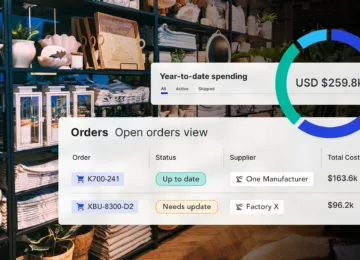Whether you’re vetting a new supplier or you’ve been working with one for an extended period of time, the audit process is not something you should ever overlook. Audits are designed to show that the supplier is both capable of meeting your needs, but also that they remain compliant with your guidelines in doing so.
Despite best efforts (or sometimes lack thereof), supplier audit failures will still occur. But that doesn’t mean you need to panic; understanding how to mitigate an audit failure will ensure your business operations continue running smoothly.
What Constitutes an Audit Failure?
This can vary based on the specific requirements you’ve set in place with your supplier, but generally an audit is considered failed when the supplier does not meet the parameters that were agreed upon at the outset of the working relationship. Buyers may audit suppliers for quality-related issues (ensuring your product can meet a stated claim); to ensure new machinery can match the quality of old; or to verify that a LEED-certified building has correct paperwork.
However, generally, audits are set to a standard cadence to catch red-flag issues with safety, labor, or production that can severely impact your business. Even the slightest breach of the guidelines you set in place with your supplier would be considered a failure that requires corrective action.
Mitigating a Failed Audit
How you move forward from a failed supplier audit is important. Failures happen but having a proactive plan to correct the issue can help lessen the severity of the impact on your business. When a supplier fails an audit, consider these four steps:
Determine the type of failure
Was it something minor, like a misplaced paper copy of Golden standard approvals? Or was there a major red flag such as child labor accusations? Both violations are enough to fail an audit, but the severity of each determines your course of action.
Agree on a deadline to take corrective action
Once a violation has been identified, work with your supplier to set a deadline for when they must correct the issue. This could include implementing new processes, ensuring new machinery is installed and employees trained in a timely manner, or rolling out updated employee trainings. Setting a deadline holds the supplier accountable and sets expectations for when you can expect the issues to be corrected.
Conduct a secondary audit of the initial issue
After the deadline passes, review the issue again. If your supplier passed, great – you can continue forward with business as usual. But if they didn’t pass, you’ll need to take note of why. Did they barely miss the mark and could correct it fully with more time? Or did they fail again completely?
Decide if you will to continue working with that supplier
With a current supplier, you have more leeway to be blunt about what you need corrected in order to continue working together. If they correct the issue within your deadline and you remain confident in their ability, it’s easy to move forward. If you’re vetting a new supplier and they fail an initial audit, it could be a sign of what’s to come. You also have less time invested, which means it’s easier to walk away.
Either way, you should always have a backup plan and be prepared to execute on it with other suppliers so your business can continue to operate. Failed audits can be scary, but it also means the process you put in place to protect yourself is working. While some failures can be critical, many are fixable through proactive cooperation between you and the seller.
To set better expectations with suppliers and build a stronger relationship, Anvyl provides a platform that helps optimize supply chain relationship management (SCRM). The tools we offer can help you keep track of your suppliers, while also diversifying your supply chain with alternative suppliers, should you have a failed audit issue. To learn more about how Anvyl can help you with SCRM, schedule a consultation with a specialist today.




